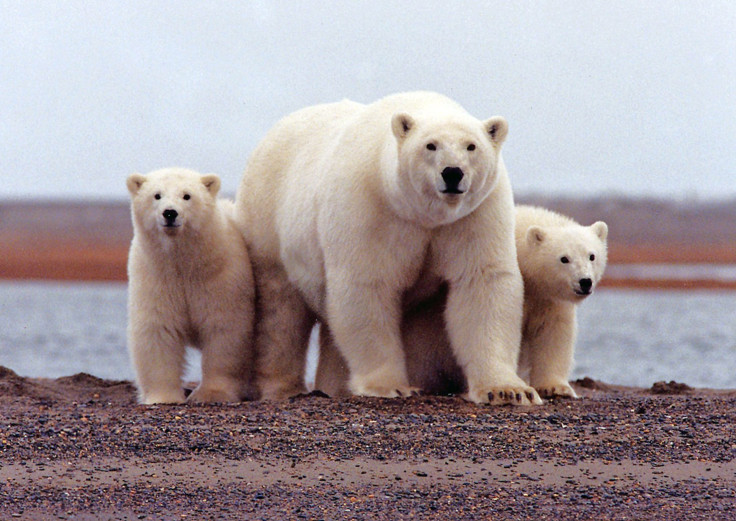Hungry polar bears corner researchers in Arctic Sea

A team of weather scientists at a remote outpost in northern Russia has called for help from the authorities because of five hungry polar bears surrounding their area. The unarmed researchers are cornered from leaving their base by bears which they say are aggressive and undeterred by disruptions.
In a statement from the World Wide Fund, or WWF, for Nature in Russia, the bears have settled outside the weather station on the island of Vaygach in the Arctic Sea preventing the scientists from leaving the building. The trapped team, consists of two meteorologists and an engineer, has no other weapons at its disposal to scare the bears off.
One of the researchers reported that the bears sleep near the station and have been fighting with one another outside the house. The two of the bears move around together and the other one that was more aggressive grappled the other bears near the house.
The team tried to scare the bears with flares but seem undeterred by the disruptions. The bears keep on roaming close to the house, the researcher added, which stopped them to conduct their daily trip outside the weather station to measure water temperatures from the sea.
The head of the WWF Polar Bear Patrol project, Victor Nikiforov, said that he has visited the isolated team two weeks ago, but no one has been able to reach them since then. In a statement, Nikiforov said that the scientists were not armed with a gun, and there are no fences around the weather station to protect the team.
"Those who live in the Arctic should be ready to meet a polar bear. But this group have no rifles or other means to scare the animals off, and the station is not fenced in,” he said.
The Polar Bear Patrol is keeping the communication with the researchers. The organisation is also appealing to the Russian government to provide the weather station with the "necessary equipment and means of scaring the polar bears."
The experts believe that the polar bears went to hunt in unusual areas away from their natural habitat because of the declining number of seals at the Arctic sea. They added that global warming prompts the Arctic sea ice to melt which the bears depend on for food.
In addition, other scientists have recognised the gradual increase in the number of polar bears attacks on humans in recent years. A boy was killed in an incident in 2011 after a group of British students were attacked by a polar bear. Several incidents of people being harassed by bears have been reported along Russia's Arctic coast in the past few weeks.
Contact the writer at feedback@ibtimes.com.au or tell us what you think below






